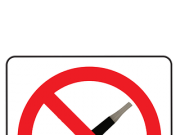The purpose of the list is guiding national authorities on the type of medicines that should be available in their countries. On October 1st 2021, the WHO published the updated list containing the infamous drugs.
Chantix
After numerous reports about such disturbances, the US Food and Drug Administration (FDA) had placed the most severe warning available on the medication, which led to Chantix’s sales dropping from $846 million in 2008, to $671 million last year.
To compensate for this drop, its manufacturer, Pfizer, had invested heavily in advertising and settling lawsuits against the drug. Moreover, the Pharma company had released data retrieved from a study which allegedly proved that there is no direct link between the consumption of Chantix and experiencing psychological disturbances.
Subsequently, after refusing to lift the warning in 2014, the FDA ha recently decided to change its stance and drop the warning. The agency required that the medication have its side effects listed, it also specified that the label should state that Chantix is more effective than other smoking cessation therapies.
Meanwhile last June, Pfizer was forced to halt the distribution of Chantix and recall some stock after finding elevated levels of nitrosamines in the pills. However, the following month the FDA said it will temporarily allow some manufacturers to distribute the carcinogen-containing drug, below an interim limit of 185 ng per day, until the impurity can be eliminated or reduced to acceptable levels.
Bupropion
On the other hand, Bupropion is actually an anti-depressant medication, and therefore also comes with possible psychological side effects, such as depression and suicidal thoughts. “This medicine may cause some people to be agitated or display other abnormal behaviors. It may cause some people to become depressed or have suicidal thoughts/tendencies. Stop the medication and seek immediate attention if you notice worsening depression, suicidal ideation (suicidal thoughts or behavior), or unusual changes in behavior that are not typical of nicotine withdrawal. Contact your provider immediately if this occurs,” reads a guide about the drug.
Interestingly, the WHO seems undeterred by all these possible adverse effects in both medications. Yet it remains fully against relatively safer nicotine products which can be used for smoking cessation such as vapes and heated tobacco products, and seem less risky than these medications.
The WHO insists on a “quit or die” approach with regards to smoking
In a recent press release, the Independent European Vape Alliance (IEVA) urged the World Health Organization (WHO) to focus on the future of millions of smokers worldwide “rather than its own counter-productive “quit or die” dogma.”
Discussing the infamous WHO FCTC COP9 held in Geneva last November, the press release highlighted that the WHO has lost sight of the importance of harm reduction in relation of tobacco, despite still embracing it in other contexts. “There is conclusive evidence that: completely substituting [vaping] for combustible tobacco cigarettes reduces users’ exposure to numerous toxicants and carcinogens present in combustible tobacco cigarettes.”
Similarly, 100 top experts in the field of public health and tobacco harm reduction, have sent a clear message to the WHO, a demand to end the war on vaping and other nicotine alternatives.
Amongst the experts were World Vapers’ Alliance (WVA’s) scientific advisor Prof. Bernhard Mayer and Dr. Colin Mendelsohn, an Australian public health expert, and they emphasized that the current anti-vaping approach from the WHO will “lead to more death and suffering from smoking.” “100 experts have spoken, and consumers agree that vaping and other methods of tobacco harm reduction must be at the forefront of saving lives. The WHO ignores that fact for the moment, but we’re asking them to listen. 200 million lives depend on it. It is time to end the war on vaping,” said WVA Director Michael Landl.
Read Further: Mirage
Experts Warn Asian Leaders Against WHO’s Misguided Vaping Guidance












